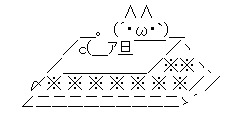Johnny's discoveries when it comes to trying to make your online/internet life better
(what a mouthful...)(Always a work in progress! Last update: 07/17/2025)
This page is essentially one where I can talk about things I've tried like services and programs that help contribute to a healthier online lifestyle, I guess. Of course, what that means for everyone is different, but here's what it is to me: It's a concious effort to not give into algorhythms, to not give too much of my personal info away (I believe that companies should not be storing your private information), and to not only passively consume 'content' online, but to do so actively and even try to create and share some of my own stuff (despite my anxiety). (I don't think I really explained it the best I could, but it's better to put down something imperfect than nothing at all). I know there are probably thousands of these sort of guides out there, but I'd like to have a place on my website for my own personal recommendations. Keep in mind I've only used Windows and Linux, so I can't really say much regarding MacOS or if the programs or websites in this article will work properly in that OS.
Section 1: The Bare Minimum (OSes)
Many people I know don't like Windows, including myself. Between what is basically a mix between useless AI and spyware, and updates that don't really add anything worthwhile to my experience, I've decided to switch over to Linux. Of course, not all programs you might need or want to use are available on Linux (depending on the distribution, honestly), but we can get to that in a little bit.
My Linux distribution of choice is Linux Mint XCFE. Mint is seen as probably the best starter Linux distro out there, and honestly, if you're just looking for an overall OS to use, this might be the only one you need. Of course, I recommend people do their own research before taking the word of some stranger on the internet, so if your computer has the resources, I recommend also trying out different systems in a virtual machine.
Linux Mint is the OS I use all the time. I do dualboot it with Windows, so basically if I have a program I can only run on Windows, I can just log into the Windows OS as needed (Though truth be told, I don't use my Windows machine for much. The only programs/games I play on there because they aren't available on Linux are ROBLOX and MapleStory. I wouldn't recommend wiping the entire Windows OS on your computer to make more room for Linux, since there can be uses for it in the future, and if you want to reinstall Windows, it completely eats up the Linux OS and you'll have to reinstall that too).
The other nice thing about certain Linux distributions is that if you have an old laptop or PC that's struggling to run the latest version of Windows, I hear that installing a light-weight Linux distribution can breathe a whole new life into your computer/laptop. IIRC the XCFE version of Linux Mint is the lighterweight one, and I like to use it for both of my machines.
Another great thing about Linux that I love is that it's very customizable. You can have custom themes that are extremely indepth. There's a whole community of people out there who love to dress up their OSes and show them off, called "ricers" (or the act is called "ricing") (I'm also going to add I don't know *why* it's called that). For instance, right now I actually have a Windows XP theme on both my computer and laptop I love to use all the time.

(Tabs and what not blurred for your sanity!)
If for whatever reason you can't install Linux or refuse to (I'm not going to tell you that you have to, I'm not your dad), there are still steps you can take to clear Windows of bloatware and other crap on your system you don't want! I'll link the video for removing Windows Recall here, but if it comes to Windows, I personally just go thru the programs list one by one and uninstall anything I won't need.There are programs designed to help you debloat your Windows OS, but I personally haven't tried them. Remember to do your own research into what will be the best fit for you.
Section 2: Programs and Websites
There are a couple of programs I really recommend, and in this section I'm gonna go over programs for both Linux Mint and Windows. Linux Mint does come built in with a lot of good programs already so I'll just say that these are add-ons, but in Windows' case some of these are replacements for some built in Windows programs (because they suck lol). I'm also categorizing websites under this, since some replacements are for a website but it'll be a program.
Programs for both Windows and Linux (Mint)
- Mullvad VPN: Cheap and Private VPN, and you can also change where the VPN is located (If you'd like to access stuff from any foreign country.)
- VLC Media Player: It's a video player. Self explanatory. I even use this one on Linux.
- LibreWolf: Web browser that's a fork of Firefox that focuses completely on privacy (And has UBlock Origin preinstalled! If for whatever reason you are deciding to stick with Firefox/some other Firefox fork, I'll cover extensions later on.)
- Element: Chat program that's also very privacy focused. If you're able to convince your friends to use it, you can have it as a Discord replacement.
- Vencord/Vesktop: Not so privacy focused this time around. If you still want to use Discord, I do recommend using Vencord on Windows or Vesktop (via the Software Manager) on Linux Mint if you want some QOL plugins, themes, etc. since this is more like a Discord add-on.
- LibreOffice: Basically, a replacement for Microsoft Word and other such programs.
- FreeTube: A program that allows you to view YouTube without them tracking a shit-ton of data and information from you. You can even save channels to your subscriptions and create playlists! These are stored locally, so you don't even have to log into YouTube.
- (BONUS!) Obsidian: A notetaking program that's somewhat similar to Notion.





















